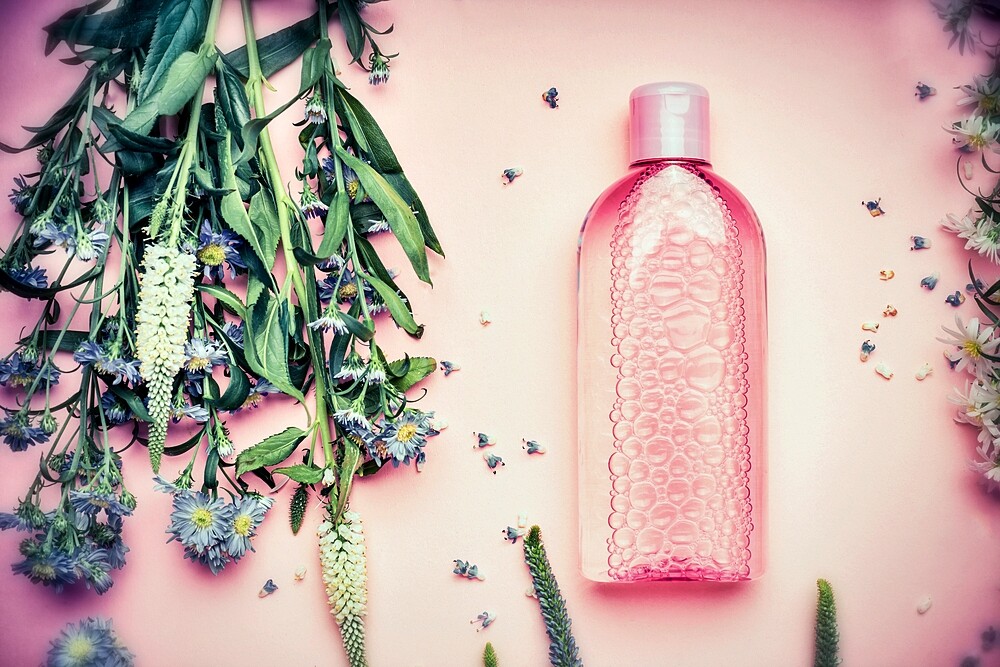Micellar water is the absolute winner on the beauty shelves. Until a few years ago we did not even know about its existence, but now we can’t do without it when removing make-up. But does the cleansing miracle really do our skin good?
What is micellar water?
It is intended to cleanse our skin gently and thoroughly and to draw dirt particles and make-up from our face like a magnet. But how does it actually work?
From the chemistry kit it sounds like this: If you put elongated molecules that are non-polar on one side (i.e. water-repellent) and polar (water-friendly) on the other side into polar water, they form tiny spheres called micelles. They are particularly fat-dissolving and clean deep into the skin layers without rubbing or pressure.
Small particles of make-up, mascara, lipstick and dirt are trapped and carried away by the micelles – solely by the bipolar charge of the molecules of the beads.
Gentle or aggressive? Does micellar water do the skin good?
We appreciate the pragmatism of the micellar water and read at the same time that some products are under criticism. They are said to contain questionable substances that are not good for the skin or the environment. Aggressive cleansing surfactants like polyethylene glycol derivatives (PEGs), poloxamers or polysorbates for example weaken the protective barrier of the skin and make it more permeable for environmental influences. Furthermore, sensitive skin types react with redness, dehydration and flaking. A study by Ökotest showed that even some micelle waters contain polyaminopropyl biguanides (PHMB for short) – a preservative which has been classified as a suspected carcinogen.
What should I pay attention to with micellar water?
Many micellar waters work without fragrances, preservatives and alcohol – especially those designed for very sensitive skin. Even more gentle cleansing is provided by micellar water that contains no synthetic surfactants. Sugar or coconut fat are such alternatives which are mostly used in certified natural cosmetics. The natural cosmetic micellar waters are gentler on the skin but do not always remove waterproof make-up with a wipe.
The INCI list provides information on the ingredients: Those who are unsure whether their favorite micellar water is not harmful to the skin and environment can check the ingredients with the app codecheck. Simply specify the product or check the barcode.
Facial cleansing in a gentle way: The dosage of micellar water
We usually use micellar water in the evening to cleanse our face and grab a cotton wool pad. But please do not use too much cleansing water, because some contain alcohol, others contain aggressive washing substances. When you buy it, make sure you choose the right skin type, because small amounts of alcohol in a micelle water or facial water for oily skin even make sense, as it can remove grease from the skin. Alternatively, there are now also cleansing wipes that work with micelle technology – including the dosage of active ingredients.
If you want to make sure that no surfactants or other drying or harmful ingredients of the micelle water (micellar water) remain on the skin, you can rinse again with water after cleaning.

